Safadi, Lavrov reiterate strong ties, expanding multi-sector cooperation
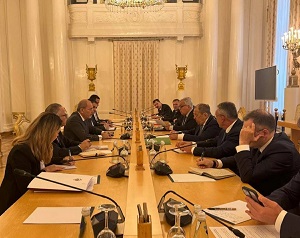
The Jordan Times
AMMAN— Deputy Prime Minister and Foreign Minister Ayman Safadi on Wednesday held extensive talks with Russian Foreign Minister Sergey Lavrov in Moscow, focusing on advancing bilateral cooperation and addressing key regional developments.
At a joint press conference, the two ministers reaffirmed the commitment of His Majesty King Abdullah and President Vladimir Putin to strengthening Jordanian-Russian ties across economic, trade, tourism, and cultural sectors, according to a Foreign Ministry statement.
Lavrov expressed Russia’s interest in deepening its partnership with Jordan, noting that His Majesty King Abdullah will participate in the first Russia-Arab Summit in October and meet with Putin. He also noted that Moscow would host the seventh session of the Russian-Jordanian Joint Committee for Trade, Economic, Scientific, and Technical Cooperation before the end of the year, and underscore ongoing cooperation in education, including scholarships for Jordanian students.
The Russian minister also pointed to the mutual visa exemption agreement, describing it as an important step to boost tourism and business ties. He said more than 1,500 Jordanian students are currently studying in Russia and praised the visits of Russian Orthodox pilgrims to Jordan’s holy sites, especially the Baptism Site of Jesus Christ.
On regional developments, Lavrov stressed that Jordan and Russia share aligned positions, particularly regarding Gaza and the West Bank. He called for a comprehensive and lasting ceasefire in Gaza, the implementation of prisoner exchange agreements, and intensified efforts to deliver humanitarian aid through UN agencies operating in the Strip. He also underlined Russia’s commitment to advancing international recognition of an independent Palestinian state in line with UN resolutions as a path to regional stability.
Safadi expressed Jordan’s appreciation for Russia’s position, saying: “We appreciate Russia’s call for an immediate and lasting ceasefire and the delivery of aid to Gaza.” He stressed that Israel must end its aggression and lift the blockade.
Safadi warned of the catastrophic repercussions of Israel’s “aggressive and expansionist” policies in Gaza, the destruction of prospects for peace in the occupied West Bank, and its violations in Syria and Lebanon. He also reiterated Jordan’s efforts, under His Majesty’s leadership, to stop the massacres and alleviate the worsening humanitarian crisis.
The foreign minister voiced Jordan’s support for mediation efforts by Egypt, Qatar, and the US to secure a prisoner exchange deal that could pave the way for a permanent ceasefire, facilitate humanitarian access, and revive prospects for a political solution. He stressed that the establishment of an independent Palestinian state on the pre-1967 borders, with East Jerusalem as its capital, remains the only viable path to peace.
Safadi reiterated that the 2002 Arab Peace Initiative offers the most comprehensive framework for lasting peace, in contrast with what he described as Israel’s “destructive policies” of war and settlement expansion. He urged the international community to choose between supporting the initiative, which secures peace and stability, or allowing Israel’s policies to fuel further conflict and instability.
“The obvious choice, one that safeguards regional security and international peace, is to support the Arab Peace Initiative. It protects the rights of all parties, upholds international law, and lays the foundation for a secure and stable future,” Safadi said.
He warned that Israel’s rhetoric of a so-called “greater Israel” only fuels hatred and will lead to greater destruction. “This agenda deepens the crisis, violates international law, and infringes on state sovereignty. It remains a fantasy for extremists, as all countries in the region, including Jordan, will resist any attempt to impose further conflict or domination,” he added.
Safadi condemned the humanitarian toll of the war. “It is unacceptable for Palestinian children to starve or for mothers to be unable to feed their children. The world bears a moral, humanitarian, and legal responsibility to put an end to these massacres and this starvation,” he said.
Responding to questions on Israel’s threats to expand the war, Safadi said such policies are intended to prolong conflict and advance expansionist agendas in Gaza, the West Bank, Lebanon, and Syria. He urged the international community to take a clear stance: “Does it work towards security, peace and stability for all, or towards further conflict and destruction that threaten regional and global security?”
Safadi cautioned against Israel’s declared intention to impose full military control over Gaza, warning of catastrophic consequences. “What Israel is talking about is the displacement of one million Palestinians from Gaza City to the south, where over a million already live in camps lacking the basics of life,” he said.
He added that a ceasefire proposal currently on the table “must be accepted,” urging international pressure to end the catastrophe, stop the killings, and guarantee the entry of food, water, and medicine, while creating the political space needed to advance lasting solutions.
Safadi also stressed the importance of allowing journalists into Gaza to report on starvation, massacres, and human suffering. He drew attention to deteriorating conditions in the West Bank, where settlement expansion, land confiscation, and assaults on Islamic and Christian holy sites threaten the prospects for peace. He said Israel is also exerting pressure on the Orthodox Church in an attempt to seize its properties.
Safadi also welcomed the growing recognition of the State of Palestine, calling it an essential step toward translating political support for the two-state solution into concrete action. He urged other countries to follow suit, arguing that recognition of Palestine is a necessary expression of international consensus. “If the world agrees that the two-state solution is the only path to peace, then recognition of Palestine is the practical embodiment of that position,” he said.
He highlighted the recent Saudi-French initiative at the UN, where 125 countries reaffirmed their support for the two-state solution. “This would not only guarantee Palestinian statehood but also ensure Israel’s security and open the door to normal relations in the region,” he said. He stressed that such international consensus must be translated into practical measures that prevent actions obstructing peace, particularly settlement expansion and land confiscation. “If the world views settlement expansion as a violation of international law and an obstacle to peace, then there must be practical measures to stop it,” Safadi added.
Turning to Syria, Safadi reiterated Jordan’s support for efforts to restore the country’s security, stability, sovereignty, and unity, and to safeguard the rights of its citizens. He underlined that Jordan stands fully with Syria in reconstruction efforts aimed at ensuring stability and the safety of its people.
“We once again caution against the consequences of Israeli aggression on Syrian soil, which push the country towards instability. Syria’s success is the region’s success, and its stability is the region’s stability,” he said.
Safadi emphasised that stability in southern Syria is vital to Jordan’s own security, recalling that the Kingdom recently hosted several meetings to address the tragic events in Sweida. He noted that Jordan is working with the Syrian government and the US to reach a solution that preserves Syria’s territorial unity and guarantees the rights of Sweida’s residents as integral citizens.
He pointed to practical steps outlined in the Amman Statement following the Jordanian-Syrian-US tripartite meeting, including Damascus’ commitment to cooperate with UN bodies, hold perpetrators accountable, deliver aid, and reintegrate Sweida into the state. He announced that a tripartite committee will be established to maintain the ceasefire and move toward a lasting solution. Preserving Syria’s unity, he stressed, is “a red line.”
Safadi also warned that Israeli interference has fueled crises in Syria, urging respect for its sovereignty and unity. He noted that Damascus has reaffirmed it poses no threat to any party, abides by the 1974 disengagement agreement, and is willing to address Israel’s security concerns. “But occupation and intervention are not security for Israel,” he said. “They threaten Syria’s stability and fuel chaos that we will all pay for.”
Safadi reaffirmed Jordan’s continued cooperation with Syria, the US, regional partners, and the international community to deliver aid and restore stability, stressing that the Amman meeting marked the beginning of a process to overcome the tragic events in Sweida and ensure that Syrians live as equal citizens, free from threats to their safety.
Safadi welcomed the conference between US President Donald Trump and Russian President Vladimir Putin on Ukraine, underlining Jordan’s support for a political solution that safeguards the rights of all parties and adheres to international law and legitimacy.
Latest News
-
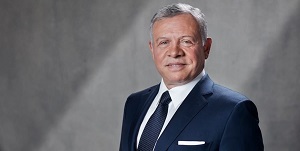 King, Japan defence minister discuss cooperation, region
King, Japan defence minister discuss cooperation, region
-
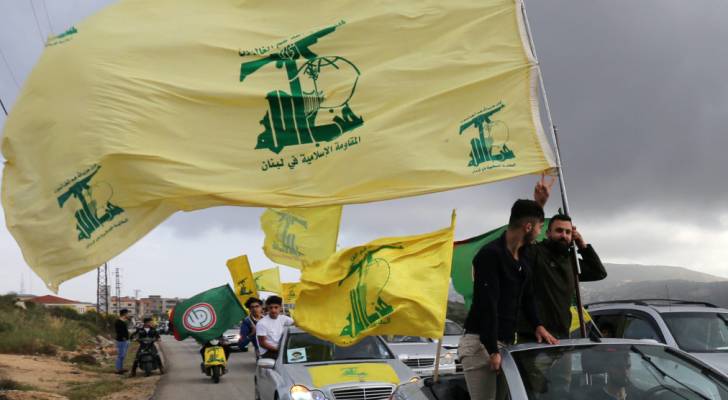 US urges 'Israel' to ease military actions in Lebanon to support Hezbollah disarmament
US urges 'Israel' to ease military actions in Lebanon to support Hezbollah disarmament
-
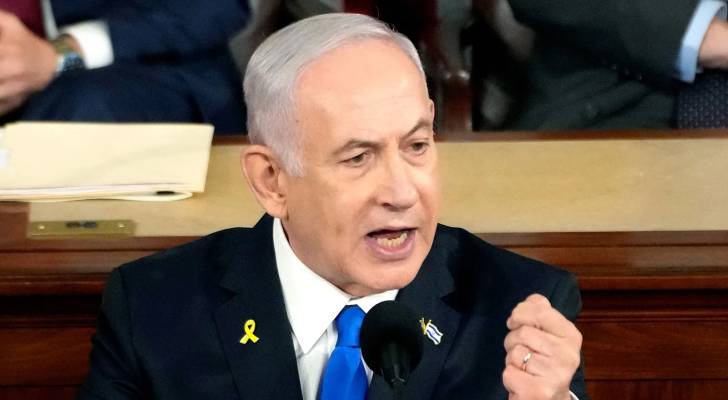 Netanyahu orders immediate talks to "end of the war under conditions acceptable to Israel"
Netanyahu orders immediate talks to "end of the war under conditions acceptable to Israel"
-
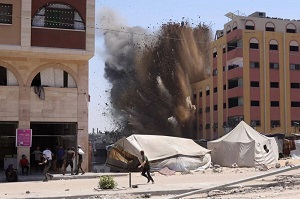 Israel says to conquer Gaza City, calls up reservists
Israel says to conquer Gaza City, calls up reservists
-
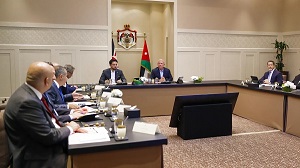 King reviews economic vision’s implementation progress in first half of 2025
King reviews economic vision’s implementation progress in first half of 2025